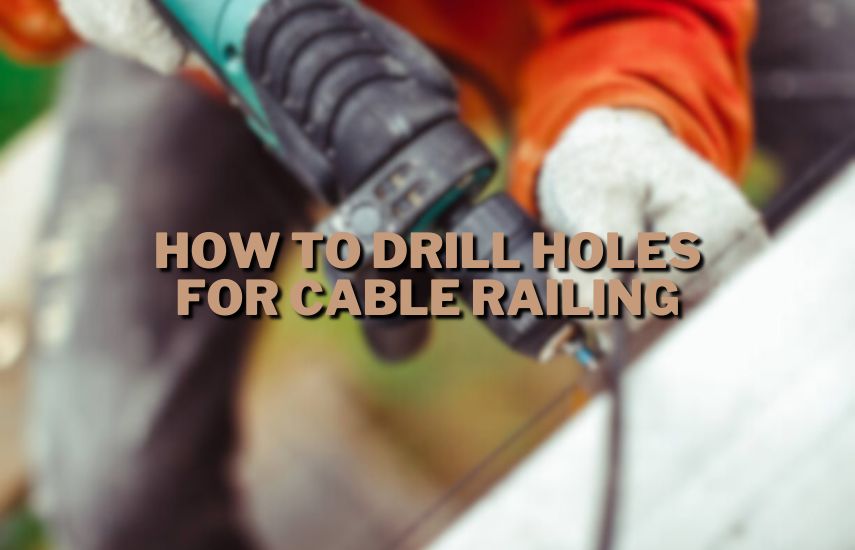Car enthusiasts often want to personalize their vehicles. A common method to achieve this is by making the car’s exhaust louder by drilling holes in the muffler.
A louder exhaust sound can give your vehicle a distinct character, turning heads as you drive.
Making holes in the muffler improves the exhaust flow, which causes the sound to be louder because the gases escape before the muffler has had a chance to fully reduce them.
To drill holes in muffler, first locate the muffler under the car. Then, select the right drill bit and mark the spots where you want the holes.
Carefully drill the holes, ensuring you clean any metal bits afterward. Finally, check the sound and adjust the number of holes if needed for your desired sound.
Using a drill bit suitable for piercing metal is crucial. For this task, it’s advisable to use a 3/8-inch drill bit.
Where Should You Drill Holes in Your Muffler to Make It Louder?drilling holes in exhaust pipe to amplify the sound might not be advisable.
Understanding the Role of the Muffler in the Exhaust System

Before changing anything, it’s crucial to understand what the muffler does in the exhaust system.
The main function of the muffler is to lessen the noise that the engine makes during the exhaust process.
What the Exhaust System Does
The exhaust system in a car is essential, as it removes harmful gases created when the engine burns fuel.
It consists of various parts like the exhaust manifold, catalytic converter, resonator, and muffler. Each piece helps reduce noise and emissions.
The Purpose of the Muffler
The muffler, also called a silencer, plays a significant role in quieting the loud noises the engine makes during the exhaust process. Gases move from the engine through the exhaust pipes and enter the muffler.
The Design of the Muffler
Inside the muffler are chambers and tubes purposely designed to create sound waves that reduce engine noise.
These tubes allow gases to pass but interrupt their flow, affecting the sound waves.
Canceling Out Sound Waves
As gases pass through the exhaust pipe, they interact with the chambers and tubes, causing interference between incoming and created sound waves.
This interference cancels out the noise, making the driving experience quieter.
Steps To Drill Holes In Muffler

Follow these steps carefully to drill holes in muffler to make it sound cool:
1. Safety First
Always put safety first by working in a place with good air, wearing safety glasses, gloves, and a dust mask.
2. Find the Muffler
Locate the muffler on your car. Usually, it’s under the car near the back and linked to the exhaust pipe. The muffler might look different depending on your car.
3. Use the Right Tools
Pick the right drill and drill bits. To drill through metal, high-speed steel (HSS) or cobalt drill bits work well.
4. Choose Drill Spots
Think carefully about where to put the holes. The number and place of the holes will change how loud the exhaust is.
To start, try making two to four holes. You can make more later if you want the sound to be louder.
5. Mark the Spots
Use a pen or something sharp to mark where you’ll drill the holes. Make sure you measure to be precise.
6. Drill the Holes
When the muffler is fixed in place, start drilling slowly. A light push will help the drill bit work better.
7. Clean Metal Bits
As you drill, metal bits will pile up. Every so often, stop drilling to get rid of these bits. This stops any blockages or harm.
8. Make the edges smooth
After drilling, check the holes for any rough bits or sharp edges. Use a file or sandpaper to make them smooth.
9. Test and Check
Listen to the car’s running engine to check the exhaust sound, ensuring it’s loud enough or has the desired tone.
Things to Think About Before Drilling Your Muffler
It’s crucial to consider essential factors before changing the exhaust system, like following the law.
How it affects performance, warranty, and insurance, seeking professional advice, safety, and the environment
Research Local Car Noise Rules
Start by researching the rules about car noise in your area. Different places have different limits on how loud your exhaust can be. Make sure you know these rules.
Understand the Effect on Car Performance
Before changing the muffler, think about how it might change the car’s performance.
Changing the muffler can affect how well the engine works, how much fuel it uses, and the emissions. Think about what’s good for your car.
Check the Warranty
Review the warranty documents for your car. Altering the muffler or exhaust pipe might influence the manufacturer’s support if issues arise.
Consider how adjusting the muffler could impact future repairs and expenses, especially if your car is still under warranty.
Look at the Insurance
Check the fine print of your insurance to see how changing the muffler might affect your coverage.
You should talk to your insurance company about how the changes might affect your policy.
Think About Other Choices
If you want a louder exhaust or better performance without breaking the law or voiding your warranty, check out other muffler options.
Some companies make legal exhaust systems that make your car louder and perform better.
Legal and Environmental Factors

Changing the muffler by drilling holes or altering its design can have legal consequences.
Many places have strict rules about how loud your car can be to prevent excessive noise. Changing the muffler might lead to fines and breaking regulations.
Negative Effect on Car Performance
Aside from legal problems, drilling holes in the muffler might harm how the car works. It might disrupt how the exhaust flows, making the engine less efficient and possibly harming the engine itself.
Explore other choices to boost the exhaust sound
Modifying the muffler could impact legal compliance and the warranty, potentially affecting the car’s performance and emissions.
It’s essential to consider local regulations and exercise caution when altering the muffler. If uncertain, seeking guidance from a car specialist can be quite helpful.
Conclusion
Drilling holes to make your muffler louder may not be a good choice, as it could break laws, harm your car, and create excessive noise.
While altering the muffler can be exciting for car fans, it requires careful planning, safety, and obeying the law.
Following noise regulations is essential, as breaking them may lead to fines or other consequences.
Consider these rules before you drill holes in the muffler, as some changes may void warranties. Seek advice from car experts to ensure safe and lawful alterations.
Each car reacts differently to modifications, so be ready for adjustments.
Prioritize safety, adhere to the law, and consider the car’s performance for an enjoyable and considerate driving experience for everyone on the road.
FAQs
Can drilling holes in the muffler make my car louder?
Yes, if you drill holes in muffler, it can enhance it’s sound. It allows more exhaust noise to escape before the muffler can reduce it.
What tools do I need to drill holes in the muffler?
You’ll need a drill and a suitable metal drill bit to pierce through the muffler. Safety equipment like goggles and gloves is also important.
Will drilling holes in the muffler improve or affect my car’s performance?
If you drill holes in the muffler, it might influence how well the car runs. The exhaust system could be changed, which would make the car’s Horsepower (HP) higher.
Also Read
How to Use Left-Handed Drill Bits Effectively









